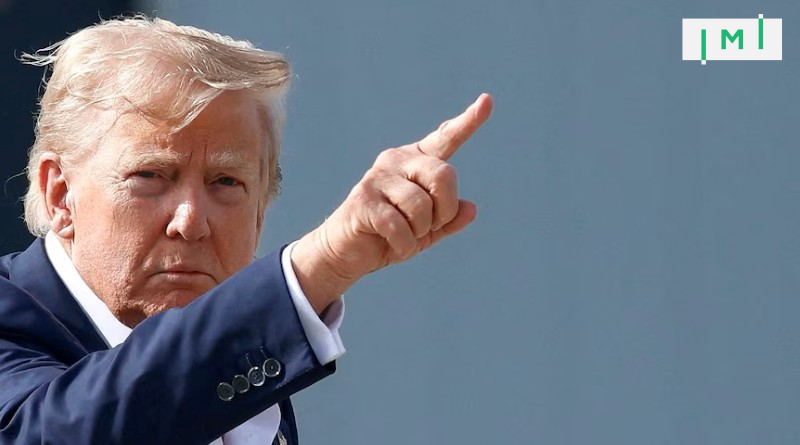Citizens of citizenship by investment countries may soon need to post up to $15,000 in bonds to obtain a US tourist visa.
The United States has launched a pilot program requiring certain visa applicants to post bonds of up to $15,000, signaling that citizens of CBI nations may be the next target under the Trump administration’s expanding immigration policies.
The 12-month program, which begins August 20, specifically targets nationals from countries “offering Citizenship by Investment, if the alien obtained citizenship with no residency requirement,” according to the Temporary Final Rule published in the Federal Register. The Department of State believes these applicants “may have insufficient personal history within or connections to their country of nationality for sufficient screening and vetting checks to be conducted.”
Although the Department of State has not officially listed CBI nations in the program, the legal language and stated intent position them as potential additions based on “screening and vetting deficiencies.”
Currently, only Malawi and Zambia nationals face the bond requirement, based on their high visa overstay rates of 14.32% and over 10% respectively. However, the program’s framework suggests the administration may soon subject citizens of CBI nations to the same requirements.
This action follows an earlier decision in June 2025, when a State Department memo included seven CBI countries among 36 nations facing potential travel bans.
Caribbean leaders responded defiantly at the time, with Antigua’s Foreign Minister declaring that they “will not be bullied; our foreign policy is one of principle.”
US “National Interests” Behind Focus on CBI
The Federal Register document reveals US concerns about these programs, stating that CBI nationals “are sometimes able to undergo a name change to conceal past criminal or other illicit ties, and are not tied to the host country’s screening and vetting apparatus.” This language indicates the administration views CBI programs as potential security vulnerabilities.
Executive Order 14161 directed the Secretary of State to “evaluate all visa programs to ensure that they are not used by foreign nation-states or other hostile actors to harm the security, economic, political, cultural, or other national interests of the United States.” The visa bond program directly implements this directive.
The Department of State has identified three categories for bond requirements: Countries with high overstay rates, those with deficient screening and vetting information, and nations offering citizenship by investment without residency requirements. This tri-pronged approach allows the administration to cast a wide net while maintaining plausible policy justifications.
The bond program serves as an operational follow-through on EO 14159, which mandated the establishment of a system to facilitate immigration bonds, and EO 14161, which directed a broader review of visa-based national security risks. The pilot program serves as a diplomatic leverage tool to pressure foreign governments while simultaneously gathering operational data to evaluate long-term implementation.
Consular officers will set bond amounts at $5,000, $10,000, or $15,000 based on individual circumstances, with $10,000 as the expected standard. The Federal Register notes the administration calculated these amounts considering “the full Immigration Enforcement Lifecycle cost (including mission support costs) ending with removal, as computed by DHS at approximately $17,121 per alien.”
Implementation Details and Restrictions
The US Travel Association estimates the pilot phase will affect approximately 2,000 applicants. However, the Department of State retains authority to modify the country list “on a rolling basis” with just 15 days’ notice, creating uncertainty for citizens of CBI nations worldwide.
Bondholders must enter and exit through designated airports, including Boston Logan, John F. Kennedy International, and Washington Dulles. They receive 30-day maximum stays, compared to typical six-month tourist authorizations, and face automatic forfeiture if they overstay or violate visa conditions.
The administration has already revoked visas for hundreds of international students and imposed travel restrictions on 19 nations, as part of its “Protecting The American People Against Invasion” executive order, according to Reuters.
The visa bond program functions as both a policy tool and a diplomatic leverage mechanism. The Federal Register explicitly describes it as “a tool of diplomacy, intended to encourage foreign governments to take immediate action to reduce the overstay rates of their nationals when traveling to the United States for temporary visits.”
The Department of State emphasizes it will fully refund bonds for compliant travelers. The program requires Treasury Department coordination through Pay.gov and involves complex interagency processes for bond cancellation or breach determination.
As the pilot program generates operational data, the Treasury Department will assess the feasibility for permanent implementation.
Explore IMI’s Tools and Resources
Ahmad Abbas is the Editor of IMI Daily, IMI’s flagship news publication.











